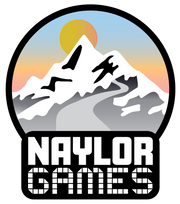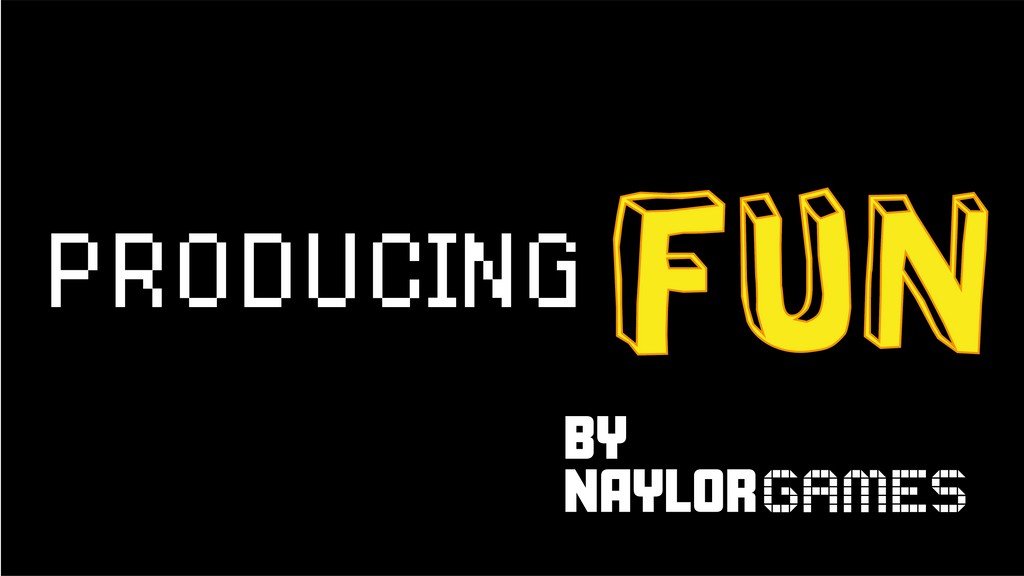I just launched a new podcast about games. Here I explore the thinking behind it and introduce the first episode.
Time for something new?
For a while now, I’ve been finding myself less and less inclined to spend time writing a blog. This has probably been very clear from how sporadic, in general, my posts have become. My original plan – back at the end of 2019 – was to get back to blogging once the New Year started. I’d really enjoyed writing the pieces that explored the behind-the-scenes story of the Magnate Kickstarter. With a well-earned Christmas break behind me, I was fully planning to get back to proper blogging again shortly after. Of course, there were some un-forseen ups and downs and a few delays happened, unrelated to Naylor Games. But – I said to myself – before March 2020 was out, I’d be back in the swing of it: Not doing it with any fixed schedule, but just pushing out the odd thing every few weeks. Delightful!
Well…we all know what happened next. And because we all know (and I suspect as uninterested in talking about it as I am) I won’t address it directly. Instead I’ll leave this sentence as an odd and foreboding lacuna to future generations (should I be lucky enough that anyone is reading this in the dim distant future). After all, if a future reader has done their research they’ll work it out: even once it is – for them – just a fascinating curio about a time that a thing happened.
Given that so much of my life over the last year was already being spent sat at a computer on my own (as I suspect it was for many), the prospect of spending countless more hours writing at it grew less appealing by the day. And since I was only really interested in writing mostly detailed analysis pieces, I didn’t bother at all; save for one practical post on Mental Health I did because I think its really, really important and a highly visual one about our logo that was most relevant at the time it was posted.
What that left me without though was something of a creative outlet. With Magnate production much slower than I hoped, and playtesting greatly curtailed, I realise only now that I was feeling the lack of something important: making a creative thing that other people can actually enjoy, right now. It’s not that it’s been a total creative desert. Far from it: I have completed a considerable amount of valuable preparatory and behind-the-scenes work on future projects. Rather, it’s that precious little of this work comes with the buzz of human connection: of seeing the fruits of your labour in the faces of the people enjoying it. That payoff of seeing people enjoy something you’ve made is endlessly deferred. It’s all happening in here, not out there and it sucks.
But this locked-down time hadn’t been all negative. In happier developments, others reached out to me. I had recently been invited on several podcasts, streams and digital panels, some of which as projects had themselves been inspired by reduced human contact. They had all been successful and I found that I really enjoyed being a guest every time. It is never a substitute for physical presence, but they were hugely therapeutic and lots of fun in themselves.
Then I did an (as yet unreleased) interview with Mike of the Who?What?Why? podcast and got a bolt of very obvious inspiration – penetrating its way through a thick wall of my own obliviousness: “maybe I should do something like this?” Mike’s impressive ability to put me at total conversational ease while stealthily improvising key details of the conversation, made me suddenly see how good the experience of interviewing real people over video could be. I had already had so much fun with other skillful and charming hosts and I am already a podcast person; I listen to them, on average, for two hours or more of everyday. Clearly creating a show would be time consuming. But that time would be spent, at least partly, with people; not WordPress.
But what exactly?
I don’t know why I didn’t see the possibility earlier. It is, I suspect, partly because I never had an obvious topic for a show. Being someone who always wants to be making things that are useful to people other than me and – often dangerously valuing myself only as far as I do that – I didn’t give it a second thought. Perhaps there was also a degree of long-held prejudice in my assumptions about the medium. Years back, it seemed like everyone was starting a podcast, and many of these had a reputation for being the same: just two or three guys (always guys) joshing around in a makeshift studio about nothing in particular. No one needs more of that I thought, better I don’t add it unless I have something really, really specific in mind. It obviously never crossed my mind that current podcast world is far more diverse than that. And that most of my own favourite shows do not match that description at all. And that the ones I listen to that are a bit little like that are still good fun. And that even those that absolutely started that way have nearly all evolved into something much better, while their boring contemporaries have faded away.
Still, I was left with a problem: I needed to do a podcast, but about what? It was much easier to start the blog: There were a ton of very specific things I wanted to write about from the off and I’ve never found brainstorming ideas for it too challenging. It helped that I’d already run a newspaper for 6 years so the whole process was incredibly familiar; no new technology or kit and no shortage of a sense of what interesting content reads like and what edits well. But the podcast would be more uncharted. I knew the podcast needed to be guest orientated – that’s what I’d enjoyed – and I didn’t remotely have the time to create a scripted, documentary show. But what to make it about?
A podcast about what we do at Naylor Games: producing fun
At least half the answer came from research.
There’s plenty of board game shows out there – some of them excellent – but the more I looked at it, it seemed to me like there were relatively few truly industry focused pods. The well-known shows tend to, quite naturally, look at things more from a game design perspective (such as Boardgame Design Lab or Ludology) and while they are great at what they do, I don’t find they’re as interested in the product and market perspective: how games are positioned, how they’re made, how they’re marketed, how they come together as a whole to create fun (an experience that goes way beyond what you could usefully call game design alone) and especially how whole companies sit within an ecosystem; or the larger industry pressures and physical limitations that shape the titles we ultimately see on the shelves. As someone whose day job was running the product function of a multinational technology company, all of this happens to be my wheelhouse. And if you are a long-time reader, it’s also something you will know is a significant part of how I think about games. So it won’t surprise you at all, that such topics are an equally significant part of our internal conversations at Naylor Games either: for us it’s always about the whole product.
Those are topics then which I should – in theory – be able to do justice too. And given they probably haven’t been given the attention they could have in the podcast world, there looks to be some solid opportunity for product differentiation in the podcast itself. Hence, Producing Fun: a podcast about making games from a product perspective.
The other half of the answer is that I don’t think I can actually know yet. It seems all podcasts are experiments. Whatever shape episode one could have taken, I can be almost entirely sure that future episodes will be different; in improved quality, format, tone and – hopefully – my competence as a host (which will likely start low). I have been hugely cheered by listening to the early episodes of the some of the world’s biggest and best known podcasts. At their best these initial forays tend to be clanky, uneven and rather inelegant. At their worst, they are, to my modern ears, unlistenable, self-indulgent garbage. Today some of these command millions of listeners weekly. Times may have changed somewhat, but if they could do it then, then I, as someone with the opportunity to learn from their mistakes, can definitely do it now.
1st Episode: Louis Downs – Manufacturer
The first episode (already available across multiple podcasting platforms) is an interview with my good friend Louis, Managing Director of CMA Creative Solutions Ltd.
Louis is a skilled manufacturer – his company made the beautiful resin buildings in the Magnate prototype and produces minatures for the world’s top game companies. But he’s also a lot more: before he took over at CMA he was a publisher; first in books and then in games with Dropzone and Dropfleet commander (which raised around million dollars on Kickstarter). His advice to me, based on deep understanding of production processes and the convention circuit, has been absolutely invaluable to the success of Magnate so far. His expertise comes from a very different place that an experienced game designer would so he’s a perfect guest as far as setting out the show’s stall. Because we know each other so well, he’s also someone I can afford to make some mistakes with.
Louis is easily one of the most knowledgeable people that I have ever met in the games world. I hope you find what he has to say as interesting as I do.
What’s next for the podcast? What’s next for the blog?
I feel very honoured that several experienced industry figures, from a wide variety of professional backgrounds, have already agreed to be guests on the show. This gives me high hopes that I should be able to make some really interesting episodes. More details will follow on twitter ahead of show recordings.
I am not giving-up on the blog. I’ll be posting each episode here and, whenever I am inspired to do so, will post other content that suits a written format. It maybe there are pieces that actively build on what’s come-up in the podcast. But the blog is not likely to come roaring back, festooned with many ‘000s of words-long essays, just yet. I am enjoying this new medium and its creative possibilities. I want to spend as much time with other human beings in creative endeavours that I can. So for now, the podcast will be my main focus outside the business of actually producing games. I hope you will join me on this journey – I think it could be a lot of fun.


Leave a comment